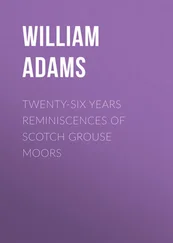John Adams - Fifty Notable Years
Здесь есть возможность читать онлайн «John Adams - Fifty Notable Years» — ознакомительный отрывок электронной книги совершенно бесплатно, а после прочтения отрывка купить полную версию. В некоторых случаях можно слушать аудио, скачать через торрент в формате fb2 и присутствует краткое содержание. Жанр: foreign_antique, foreign_prose, на английском языке. Описание произведения, (предисловие) а так же отзывы посетителей доступны на портале библиотеки ЛибКат.
- Название:Fifty Notable Years
- Автор:
- Жанр:
- Год:неизвестен
- ISBN:нет данных
- Рейтинг книги:3 / 5. Голосов: 1
-
Избранное:Добавить в избранное
- Отзывы:
-
Ваша оценка:
- 60
- 1
- 2
- 3
- 4
- 5
Fifty Notable Years: краткое содержание, описание и аннотация
Предлагаем к чтению аннотацию, описание, краткое содержание или предисловие (зависит от того, что написал сам автор книги «Fifty Notable Years»). Если вы не нашли необходимую информацию о книге — напишите в комментариях, мы постараемся отыскать её.
Fifty Notable Years — читать онлайн ознакомительный отрывок
Ниже представлен текст книги, разбитый по страницам. Система сохранения места последней прочитанной страницы, позволяет с удобством читать онлайн бесплатно книгу «Fifty Notable Years», без необходимости каждый раз заново искать на чём Вы остановились. Поставьте закладку, и сможете в любой момент перейти на страницу, на которой закончили чтение.
Интервал:
Закладка:
His son, Rev. Moses Ballou, held a prominent place in our church as one of its talented ministers, and as a writer of more than ordinary ability. He was born in Munroe, Mass., March 24, 1811. Educated at the academy at Brattleboro, Vt., he began preaching at the age of twenty-two. One of his earliest charges was at Bath, N. H. He was subsequently settled at Portsmouth, where he had pastorates twice. He had charge of the churches at Bridgeport, Hartford, and New Haven, Conn., and in later years removed to New York city, where he was pastor of the Bleecker Street Church. He then came to Philadelphia, and took charge of the Church of the Restoration. Failing in health, he gave up his work in that city, and removed to Atco, N. J. His friends there erected for him a small church edifice, where he held service when able so to do. He died in Philadelphia, May 19, 1879.
He was the author of two books, – one the "Memorial of Rev. Merritt Sanford;" the other, "The Divine Character Vindicated," a review of Rev. Edward Beecher's work, entitled "The Conflict of Ages." This last-named volume indicates the masterly mental strength of the man. Dr. Beecher himself, we are informed, acknowledged it to have been the ablest of any reply made to his work. It has never yet been read by Universalists as it deserves to be. Mr. Ballou was not only a strong and logical writer, but an earnest and eloquent preacher. Dr. T. B. Thayer writes of him: —
"In his best days, when in the vigor of his manhood, physically and mentally, few men could hold a thoughtful and intellectual audience to closer attention than he; and even those who differed from him theologically acknowledged the ability with which he maintained his positions, and were little disposed to enter the lists of controversial argument against them. And at times when the great truths of the Gospel seemed, in the midst of his speaking, to dawn upon him in new and larger revelation, he would break into speech that thrilled his hearers, and lifted them for a space into the fellowship of the angels.
"He knew for a good while that the end was approaching, and he was ready. Death was to him only the door that opened into the new immortal life, which was almost as presently real to him as the life he was living here. And when, at the last, his life-long friend, Rev. James Shrigley, said good-bye to him, he exclaimed, 'Why say good-bye, when we shall meet again to-morrow?'"
Of all the worthies in this company of church leaders of which we are speaking, not one of them is entitled to a higher place than Hosea Ballou, D. D., or "2d," as he was called before the doctorate was conferred upon him. A rare man was he, a clear-headed and closely logical thinker, an untiring student, one of the soundest of preachers, and humblest and noblest of men. We have no fear of using language too strong in our statement of his character, its pre-eminence and worth. An editor of a volume of his discourses has given it, on the title-page, from Laman Blanchard: —
Конец ознакомительного фрагмента.
Текст предоставлен ООО «ЛитРес».
Прочитайте эту книгу целиком, купив полную легальную версию на ЛитРес.
Безопасно оплатить книгу можно банковской картой Visa, MasterCard, Maestro, со счета мобильного телефона, с платежного терминала, в салоне МТС или Связной, через PayPal, WebMoney, Яндекс.Деньги, QIWI Кошелек, бонусными картами или другим удобным Вам способом.
1
Oration of Governor Long before the municipal authorities and citizens of Boston, July 4, 1882.
2
Eph. iv. 13.
3
Milman's "History of Christianity."
4
Civitate Dei, lib. xxi., chap. 16.
5
Civitate Dei, lib. xxi., chap. 16.
6
For evidence of the many utterances of the Universalist idea in the literature of the past, the reader is referred to the volume entitled "A Cloud of Witnesses," by Rev. John W. Hanson, D. D., Chicago, 1880.
7
Bancroft's History of the United States, vol. viii.
8
Acts, xvii. 24, 28.
9
Rev. v. 18.
10
1 Cor. xii. 14, 26.
11
When Rev. John Murray first preached in Faneuil Hall, Nov. 26, 1773, he discoursed from this appropriate text: "If the Son therefore shall make you free, ye shall be free indeed." – John, viii. 36.
12
Rev. T. Whittemore, D. D. Speech at Faneuil Hall Festival, 1858.
13
Rev. J. H. Tuttle, D. D.
14
Rev. J. Smith Dodge, D. D.
15
Rev. A. D. Mayo, Sermon at Funeral of Rev. Thomas Jones of Gloucester, Mass., 1846.
16
Rev. Dr. A. A. Miner, Discourse at Gloucester, September, 1870.
17
Comm. on Acts, ii. 23.
18
Heb. ii. 9.
19
Rev. H. W. Beecher.
20
John, xii. 32; 1 Tim. ii. 4.
21
John, iii. 16, 17.
22
Dr. Taylor Lewis.
23
The volume on the Atonement, issued in 1805 by Rev. Hosea Ballou, was the first of any note, in this country, in which the subordination of Christ to the Father was maintained. Dr. Mayhew and Rev. James Freeman, of Boston, had already preached anti-Trinitarian views in that city, and Dr. Priestley and a Mr. Butler had preached them in other parts of the country. But Mr. Ballou's circumstances had not, it is likely, allowed him to know what these men believed and taught. – Rev. Dr. A. P. Putnam, in "Religious Magazine," April, 1871.
24
Mr. Parker's views were the subject of special note and examination on the part of the Universalist journals. A candid and able review of his opinions was given in "The Universalist Miscellany" of April, 1845, by the editor, Rev. O. A. Skinner. Rev. Mr. Lothrop, of the Brattle Square Church (Unitarian), delivered and published a strong discourse in opposition to the Rationalism of Mr. Parker.
25
Anti-Supernaturalism, a sermon delivered July 13, 1845, before the Senior Class of the Divinity School, Harvard University.
26
Biography of Ralph Waldo Emerson, by G. W. Cook.
27
This circular was signed by the sub-committee, Rev. J. G. Adams and Rev. E. H. Chapin.
28
Memoir of Dr. Gannett, by his son, p. 294.
29
Heb. viii. 21, 22.
30
Chambers' Miscellany.
31
New Amer. Enc.
32
Universalist Quarterly, Vol. VI. No. 4, October, 1849.
33
"Gospel Banner," Augusta, Me., June 10, 1882.
34
The Governor of Wyoming affirms that woman suffrage is an unqualified success in the Territory.
35
For a more ample view of the position and work of the women of the Universalist Church, we refer the reader to the volume recently given to the public by Mrs. E. R. Hanson, entitled "Our Women Workers." Chicago, 1882.
Читать дальшеИнтервал:
Закладка:
Похожие книги на «Fifty Notable Years»
Представляем Вашему вниманию похожие книги на «Fifty Notable Years» списком для выбора. Мы отобрали схожую по названию и смыслу литературу в надежде предоставить читателям больше вариантов отыскать новые, интересные, ещё непрочитанные произведения.
Обсуждение, отзывы о книге «Fifty Notable Years» и просто собственные мнения читателей. Оставьте ваши комментарии, напишите, что Вы думаете о произведении, его смысле или главных героях. Укажите что конкретно понравилось, а что нет, и почему Вы так считаете.












